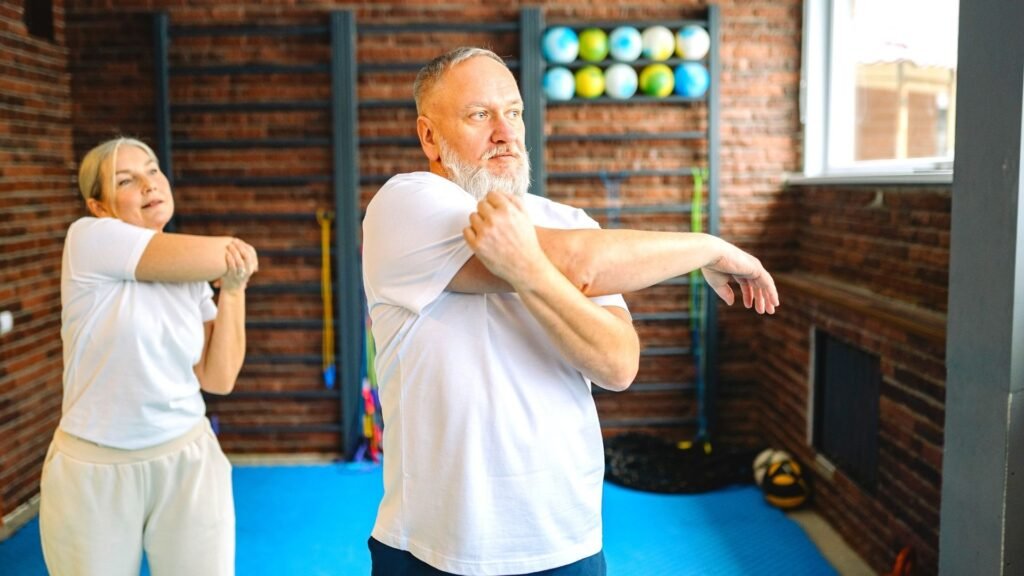Can living an Anti-Inflammatory Lifestyle Reduce Symptoms of Chronic Pain?
Inflammation is a result of an immune response in the body when we are injured or sick. To heal itself, the body sends out inflammatory cells to the injury or the virus. These cells start the healing process. This form of inflammation is known as acute inflammation and only lasts a short time.
What is chronic inflammation?
Chronic inflammation is the type of inflammation that is constant. Your body continues to send inflammatory cells to the body even when there is no outside danger or reason. When these cells are constant they can begin to attack our body and cause damage or disease.
How does chronic inflammation relate to chronic pain?
When our bodies are in a constant state of inflammation they can cause severe damage to our joints and tissues, which then can lead to swelling, stiffness and chronic pain in those areas.
Diseases like rheumatoid arthritis are caused my chronic inflammation, where the body has a variety of immune cells that are found in the lining and fluid of the joint. These cells attract more immune cells, which then leads to joint damage.
What factors can cause chronic inflammation?
While we don’t know why some people have high amounts of chronic inflammation, everyday we are subjected to substances or environmental influences that may cause chronic inflammation. By reducing these factors we can help reduce our chronic inflammation and heal ourselves from the inside out. Here are some different diet and lifestyle factors that may contribute.
Foods that cause inflammation are:
- sugar
- processed foods
- refined carbohydrates like, white breads and pastries
- fried food
- red meat like burgers and steaks
- processed meats like sausage and hot dogs
- margarine, lard shortening
- trans fats
- gluten
- saturated fats
- MSG
Lifestyle factors that contribute to chronic inflammation:
- smoking
- obesity
- alcohol consumption
- chronic stress
How do we help reduce Chronic Inflammation?
If you have chronic inflammation it’s important to get it under control so it doesn’t cause further damage. Some ways to help reduce your chronic inflammation is through diet, supplementation and lifestyle changes.
It all starts by making a choice. Choosing to take the steps to heal yourself by making small adjustments and making better food choices. This doesn’t have to happen all at once, but you can start by just eliminating the foods listed above and adding some beneficial foods to your diet. If you need help with different recipes, please visit my wife’s website at Nikkisgreatastes.com. or her Instagram page @nikkisgreatastes.
She has an anti-inflammatory recipe blog where she shows easy and healthy recipes that are delicious and don’t make you feel like you’re eating healthy.
To begin the process of eating better, here are some choices you can start making to help reduce your inflammation:
- leafy greens
- nuts
- fatty fish that is low in mercury like, wild caught salmon
- fruits
- healthy oils like, avocado and olive oil
- turmeric and black pepper combined (this can be found in juice form at many health food stores).
- lemon
- herbs and spices
When buying your produce at the store, aim to buy organic or non-gmo products. Organic produce won’t contain the pesticides that could also contribute to inflammation in the body. If cost is a factor, look in the frozen food section. Frozen fruits and vegetables tend to be less expensive. If you have a Trader Joe’s in your area, that is a great option. They have a variety of organic produce for a very affordable price. When buying boxed items always check the labels. Look for products that have minimal ingredients that are whole and actually ingredients that you can read and pronounce. Refer to nikkisgreattastes for more information on what brands are good.
Supplements
There are many natural supplements available that can help reduce chronic inflammation. Working with your primary doctor to make sure you’re on a quality multi-vitamin could be beneficial. Also adding in some of these supplements along with diet can be beneficial.
Anti-inflammatory supplements:
- curcumin
- omega-3 fatty acids
- zinc
- capsaicin – (can be found in cream form and used to receive pain and inflammation topically).
- green tea
Always talk with your doctor before starting any supplements to ensure that they won’t interfere with medications that you could be taking. Watch our latest video to find out more about what living an anti-inflammatory lifestyle looks like. As always, if you have questions about this article please don’t hesitate to reach out to us.
You can also schedule a consultation with Nikki Goyle to go over some food choices and come up with an anti-inflammatory food plan that could benefit you further in reducing your chronic inflammation and pain.
Call our office today to get on the schedule.
Here’s to good health and less pain,
Dr. Goyle

